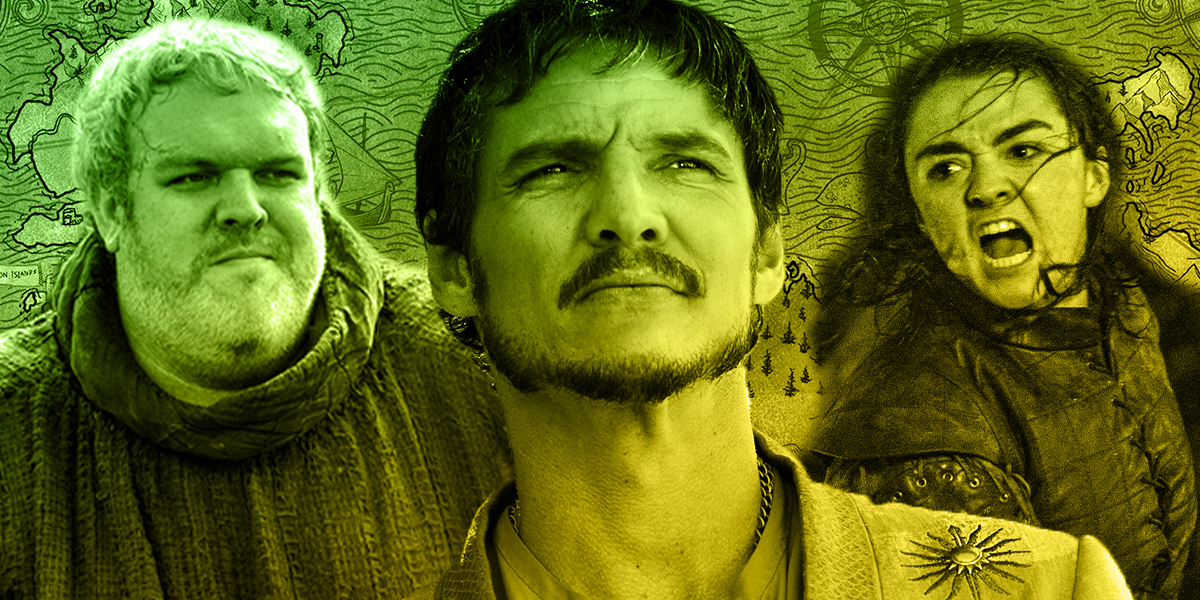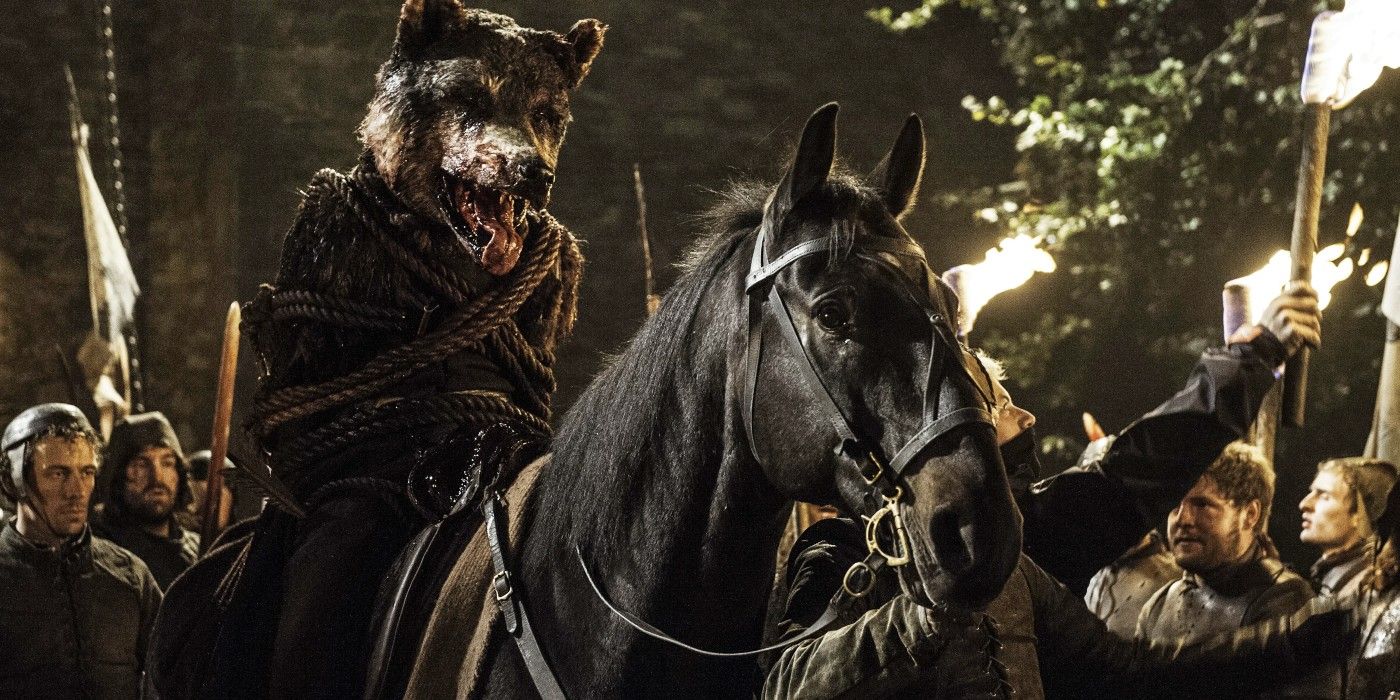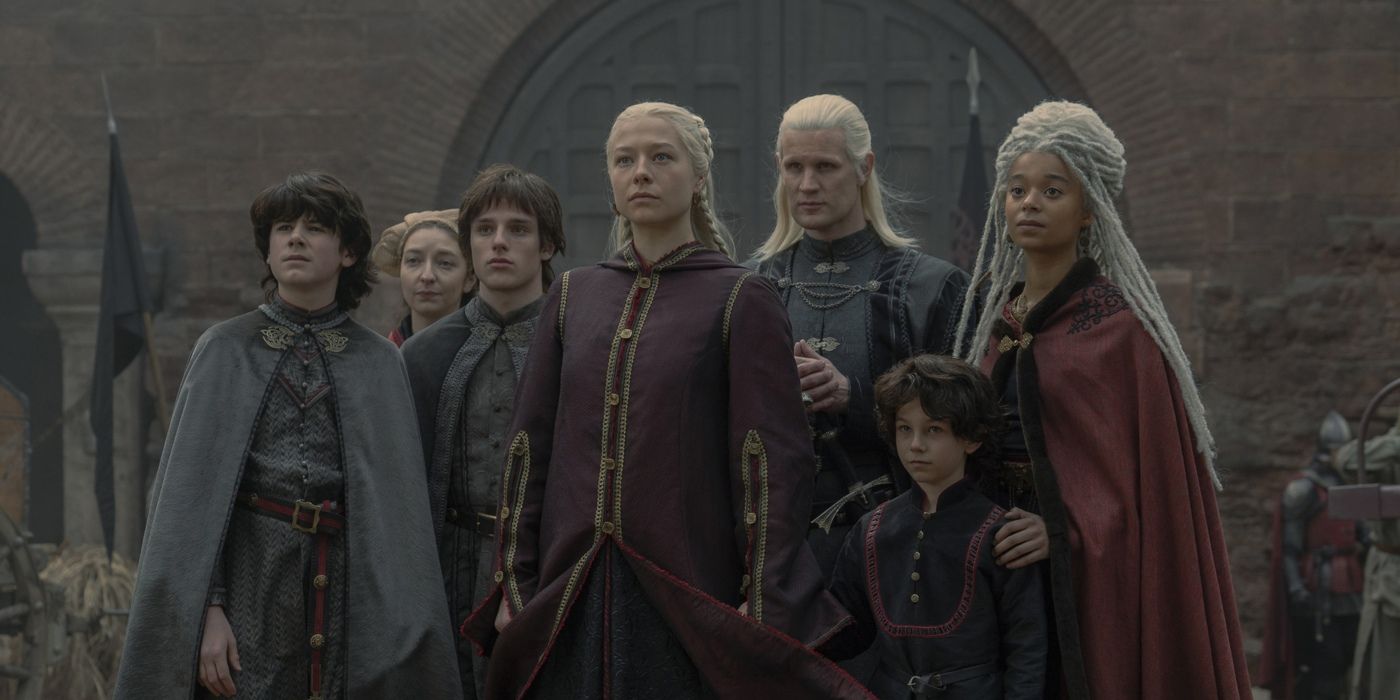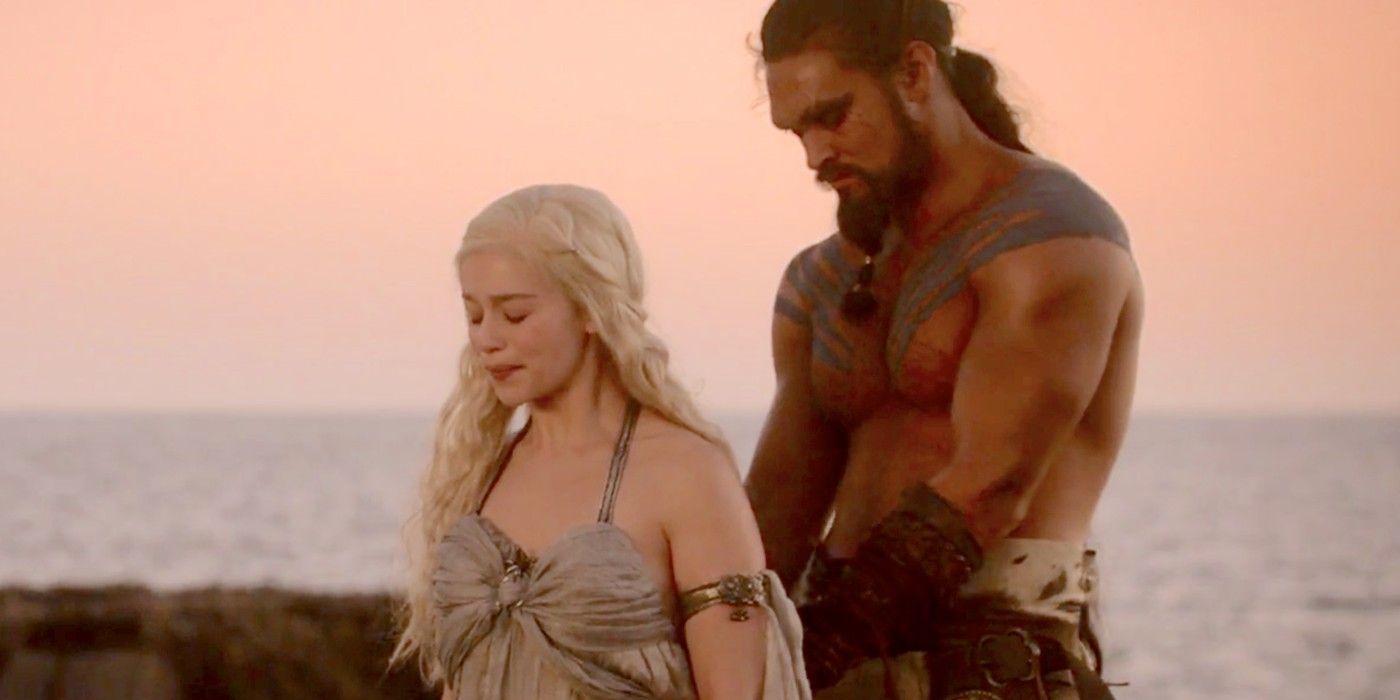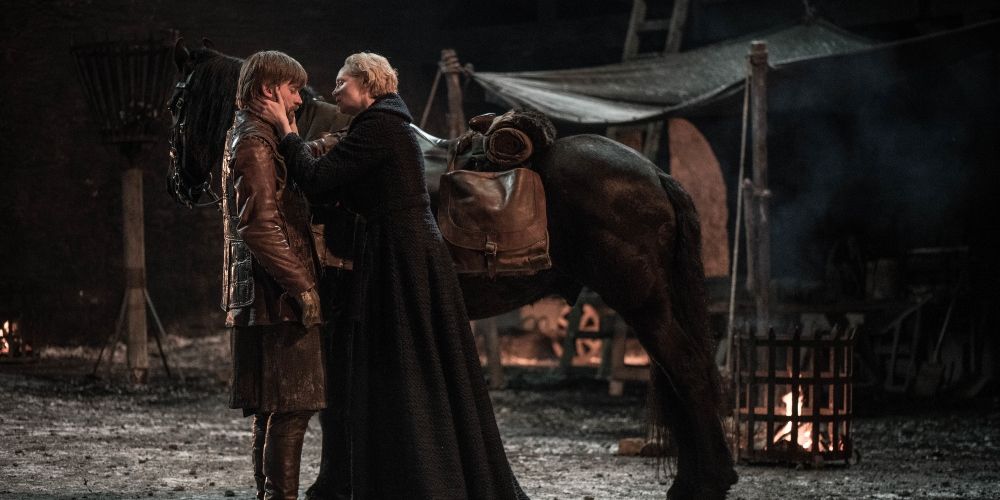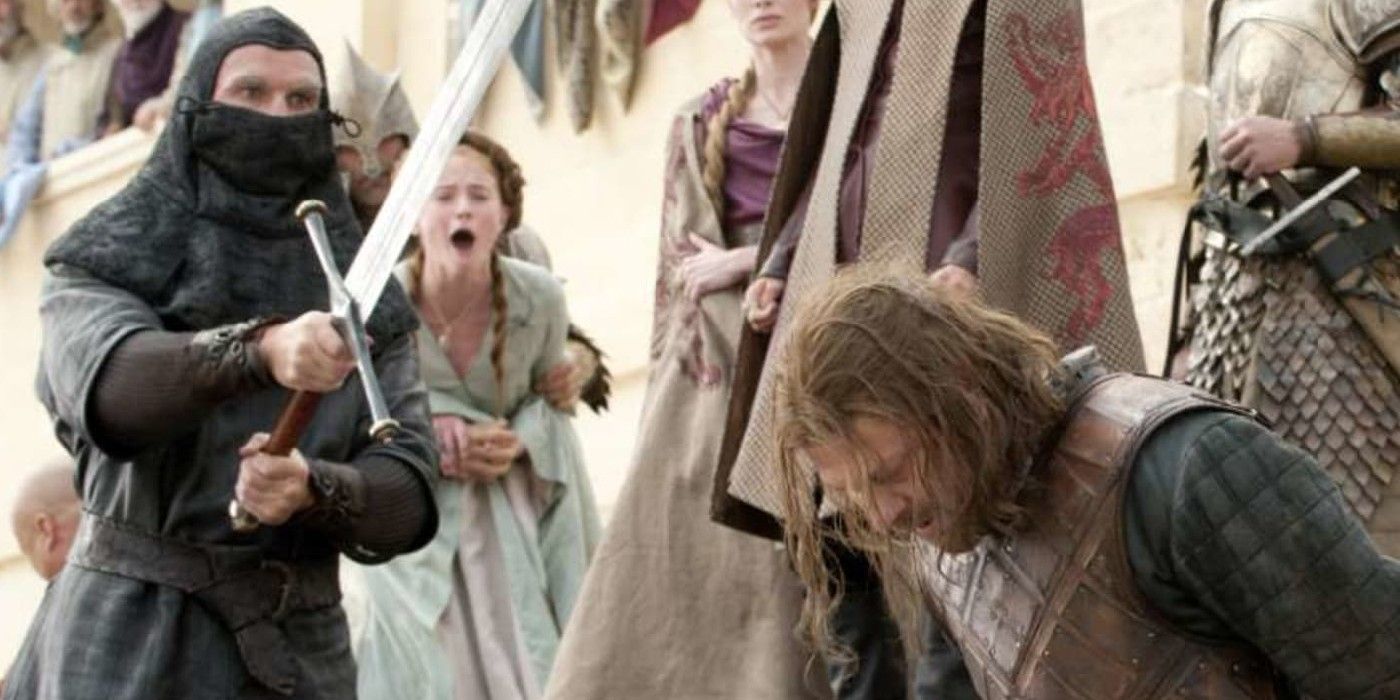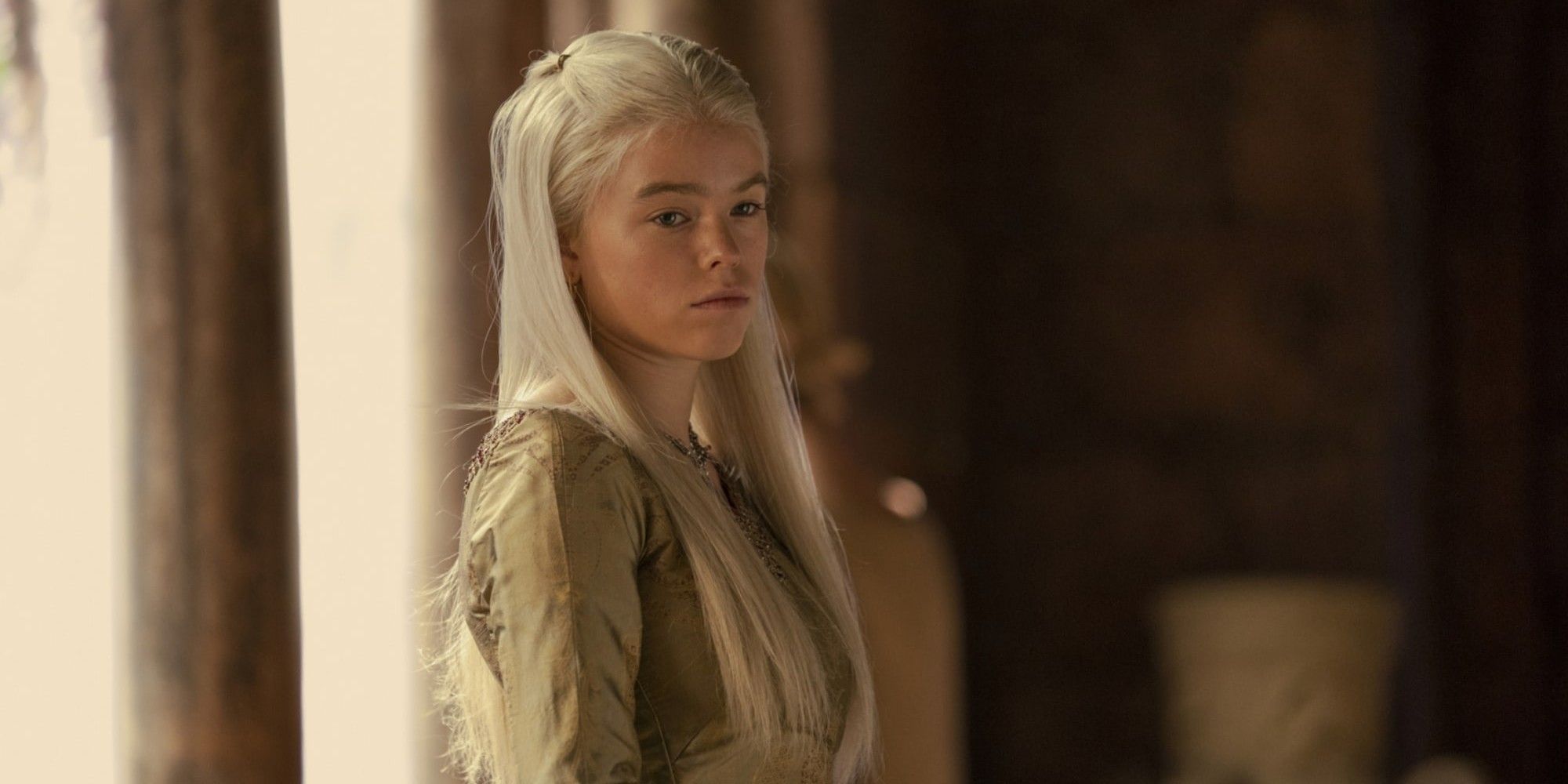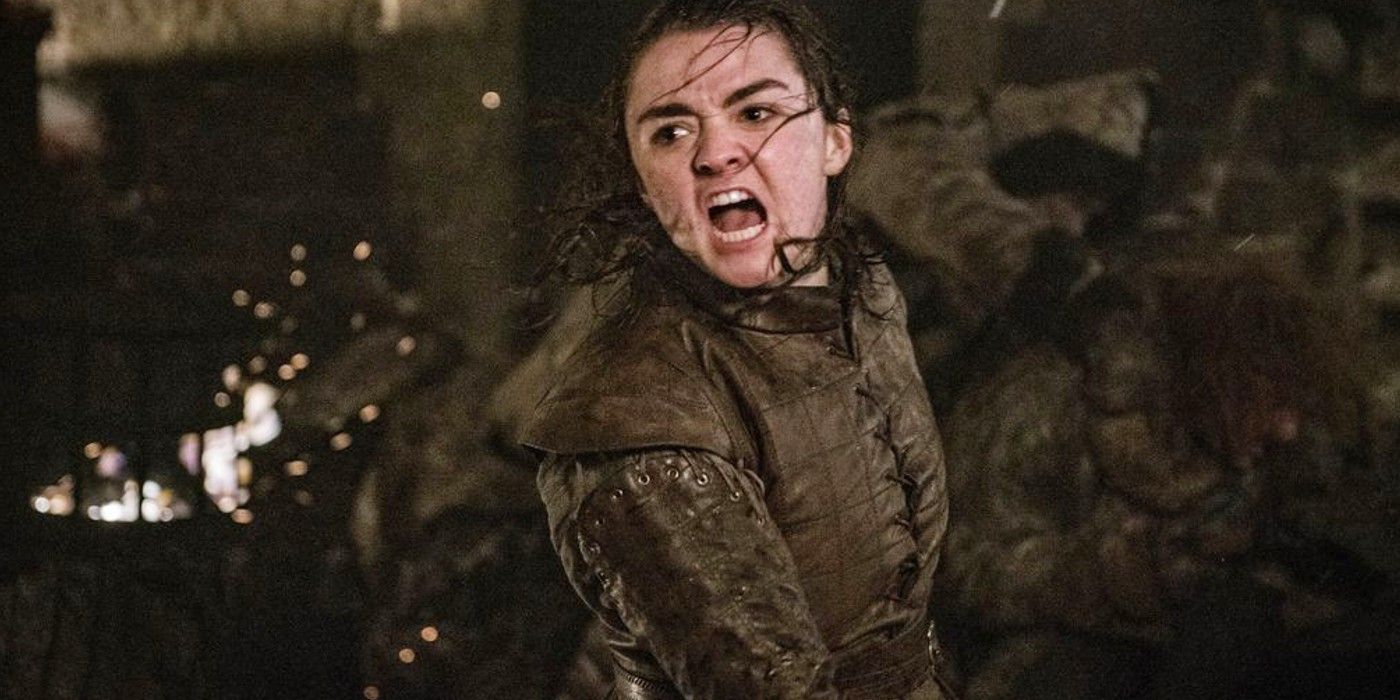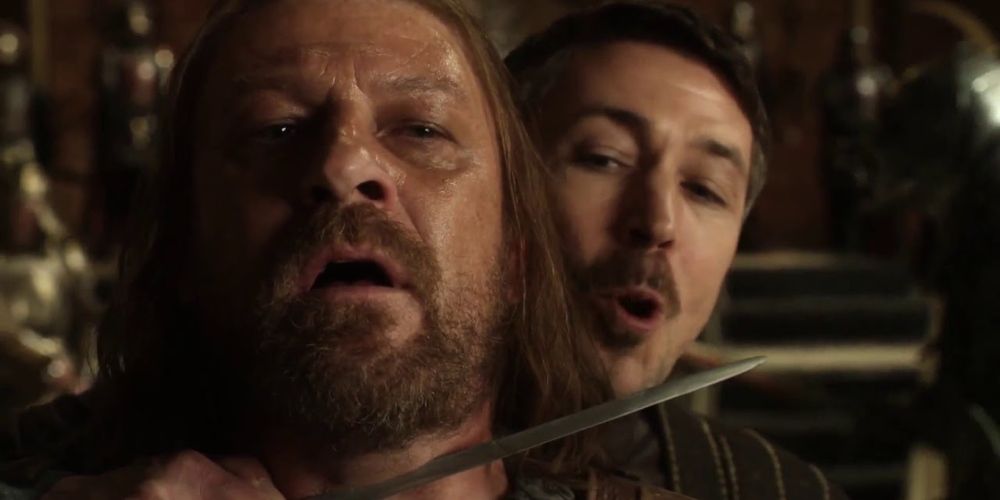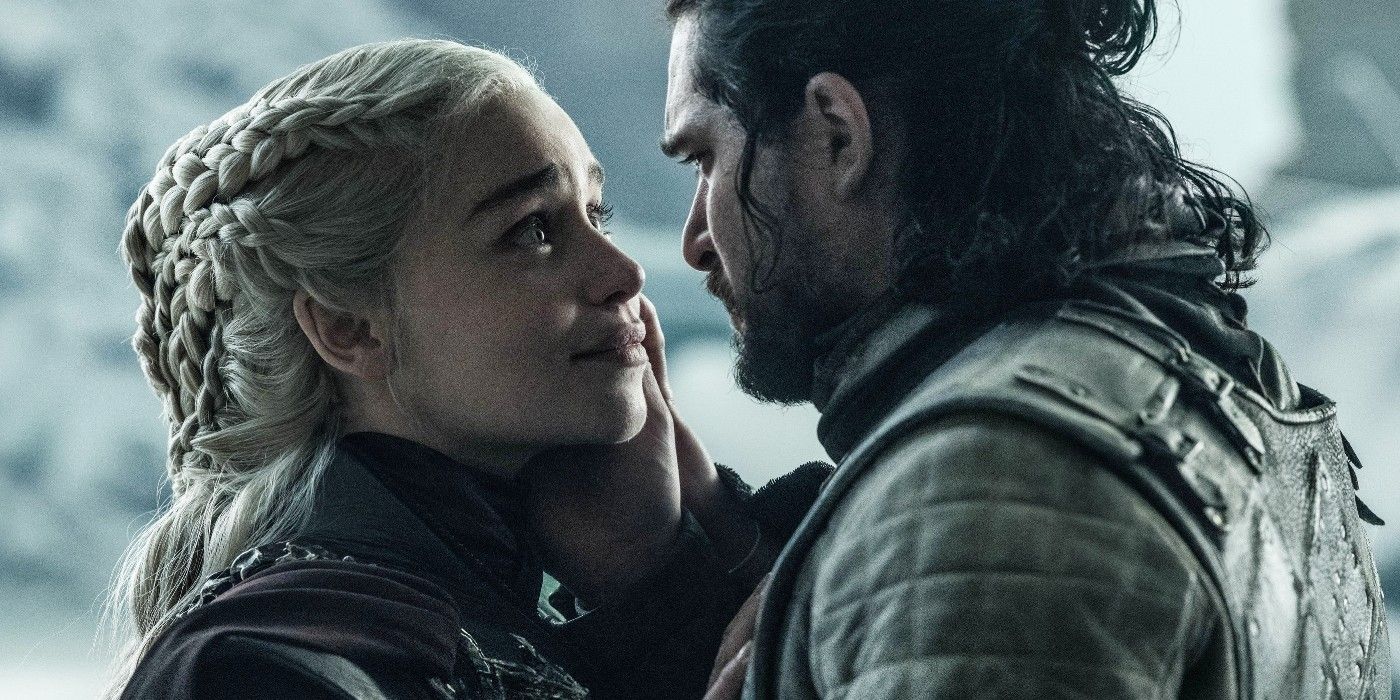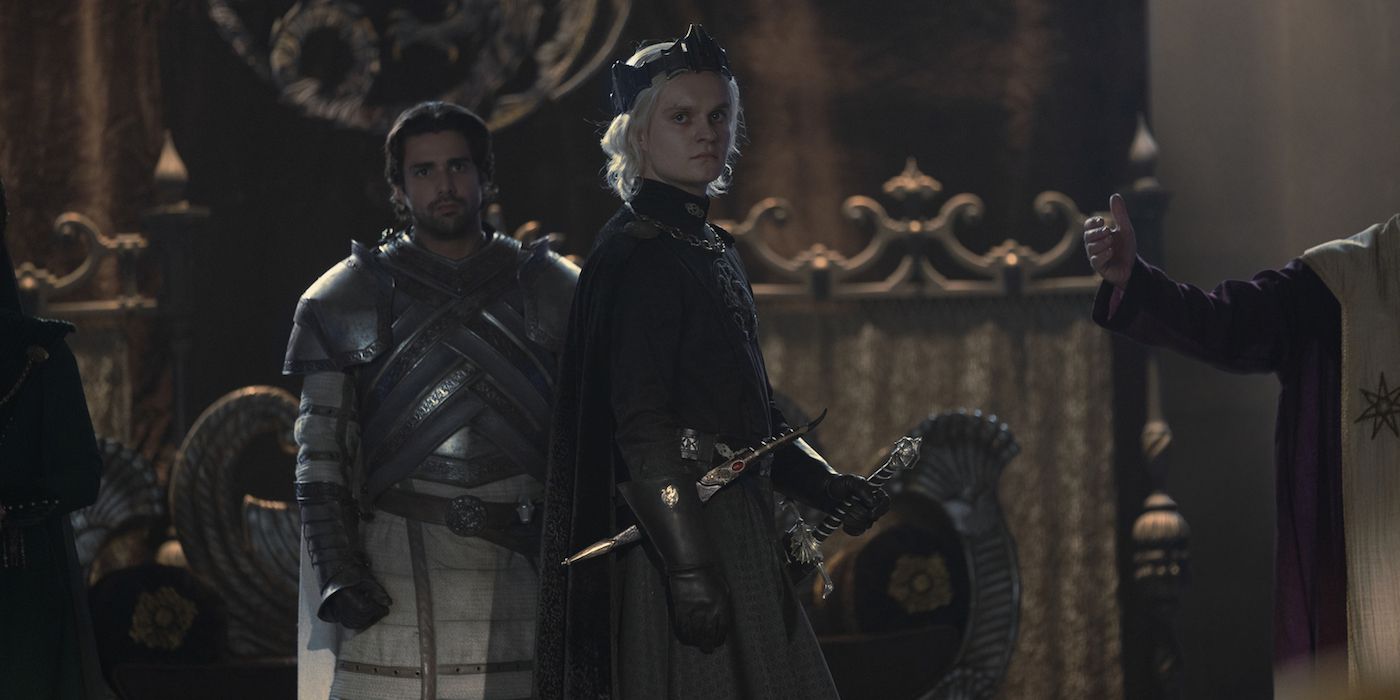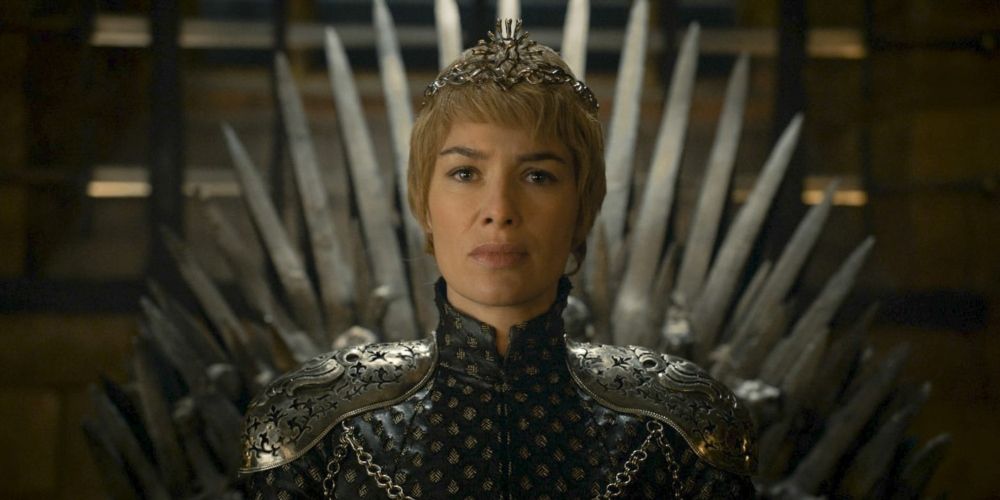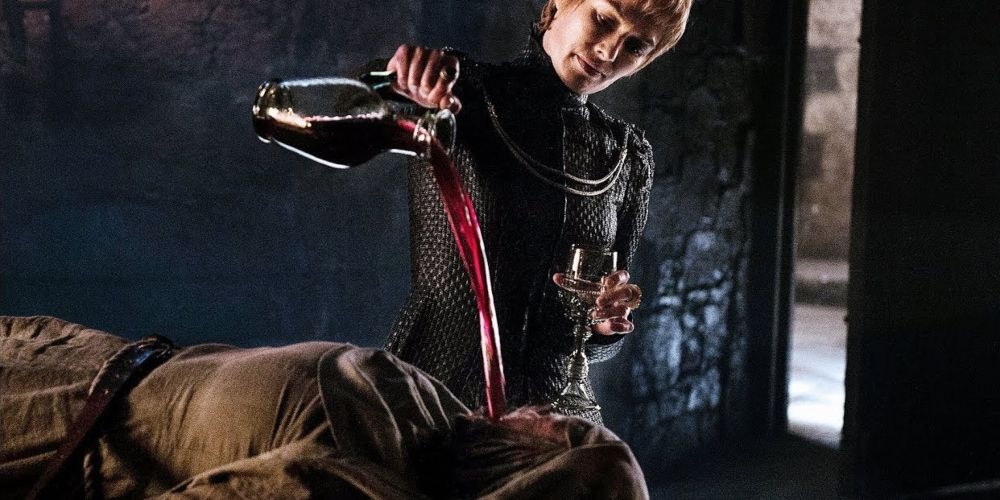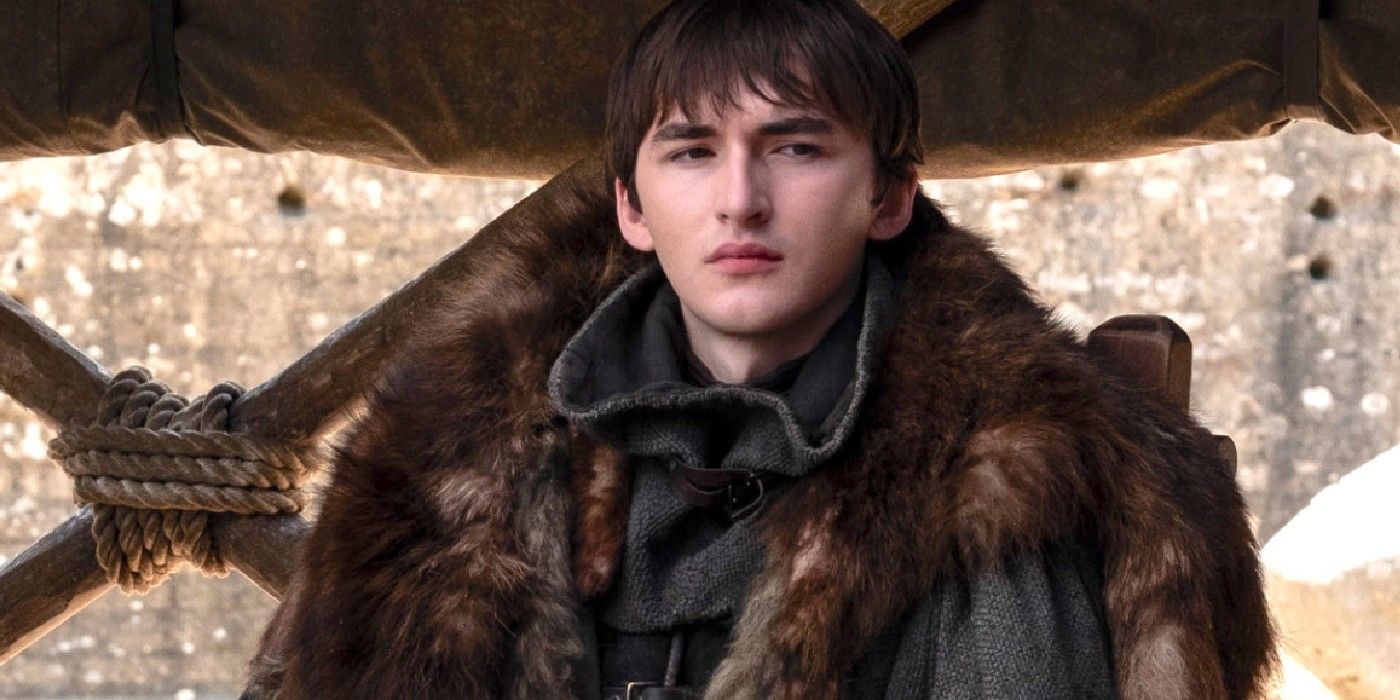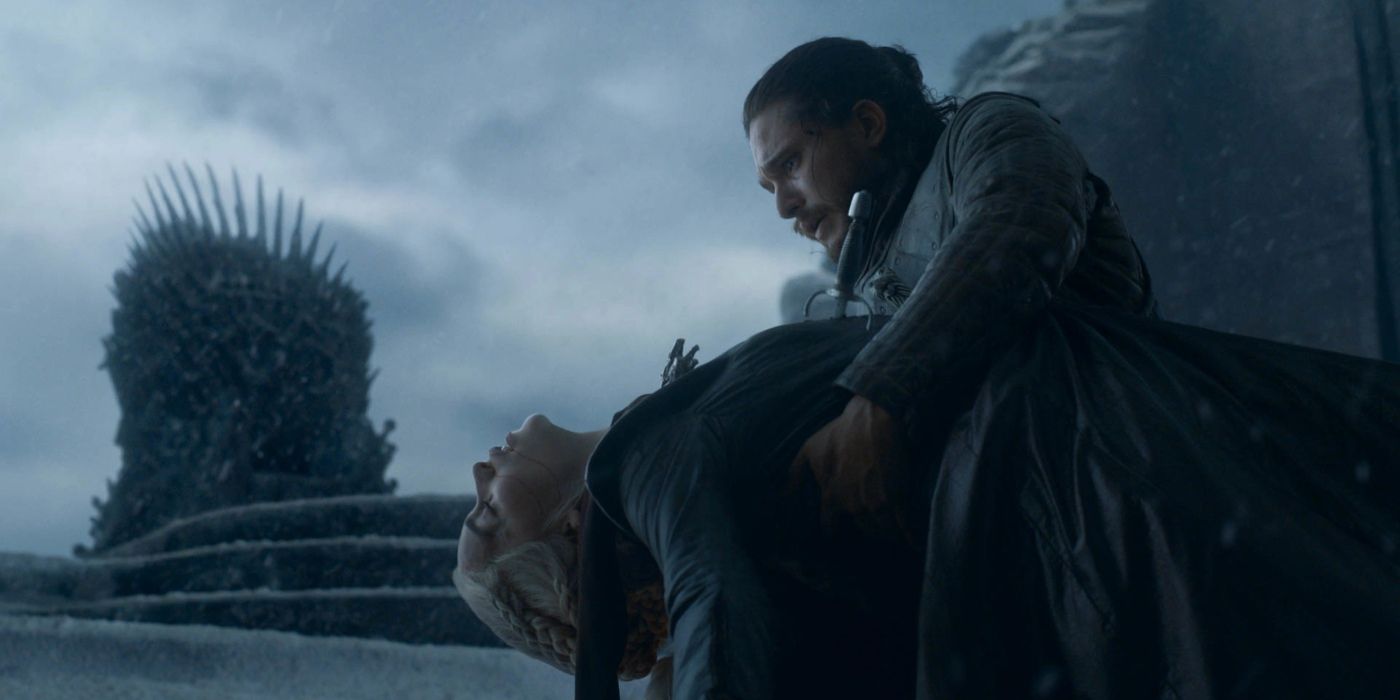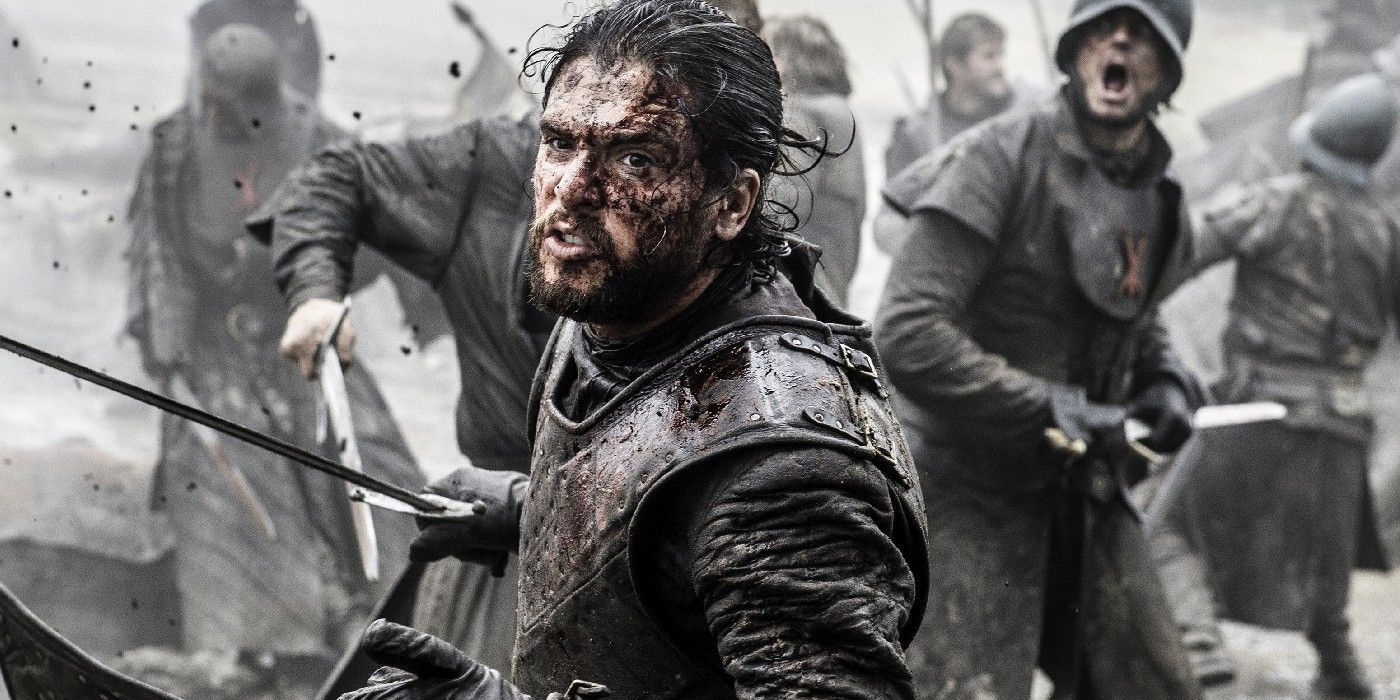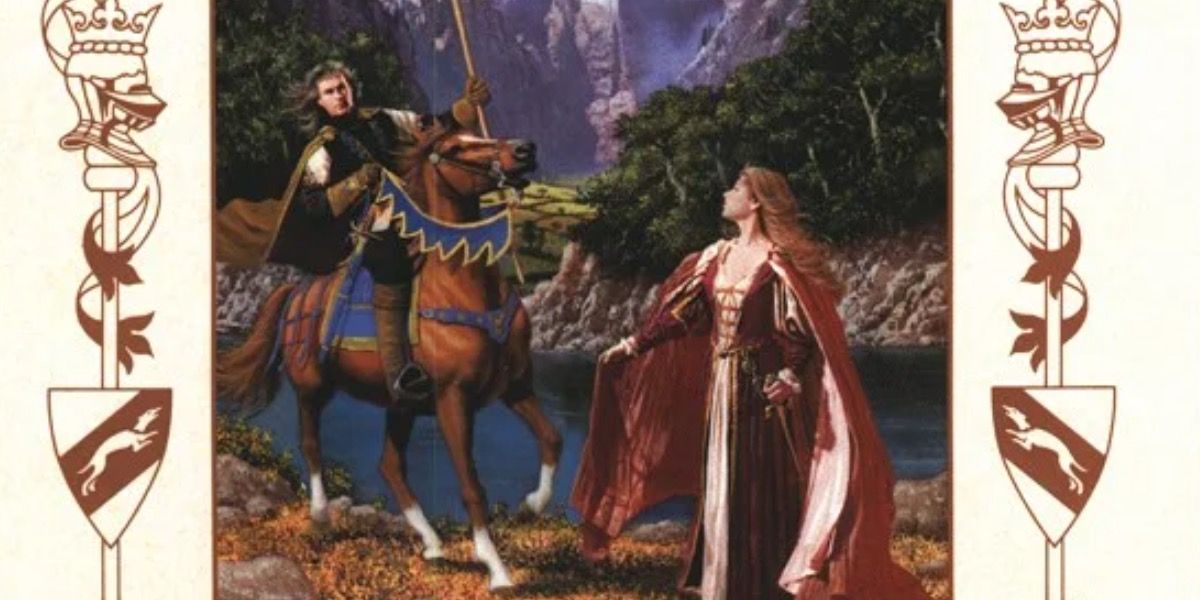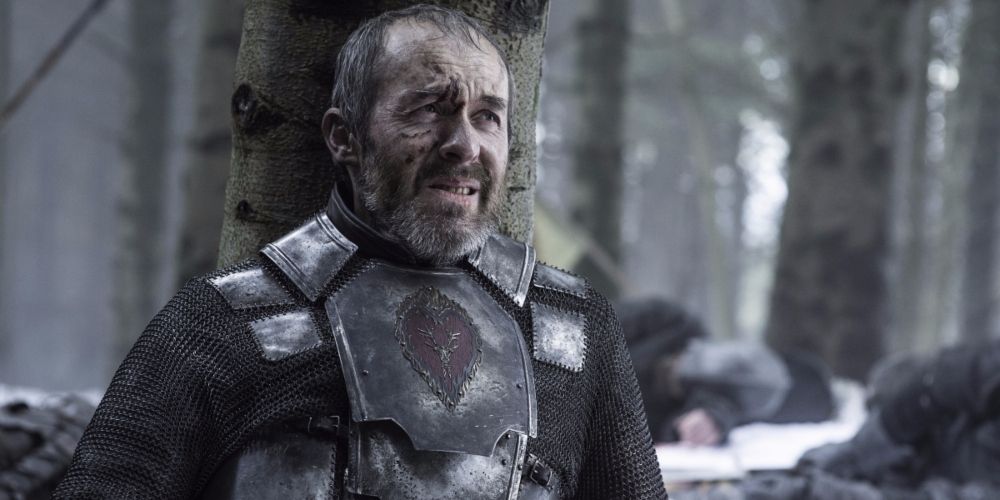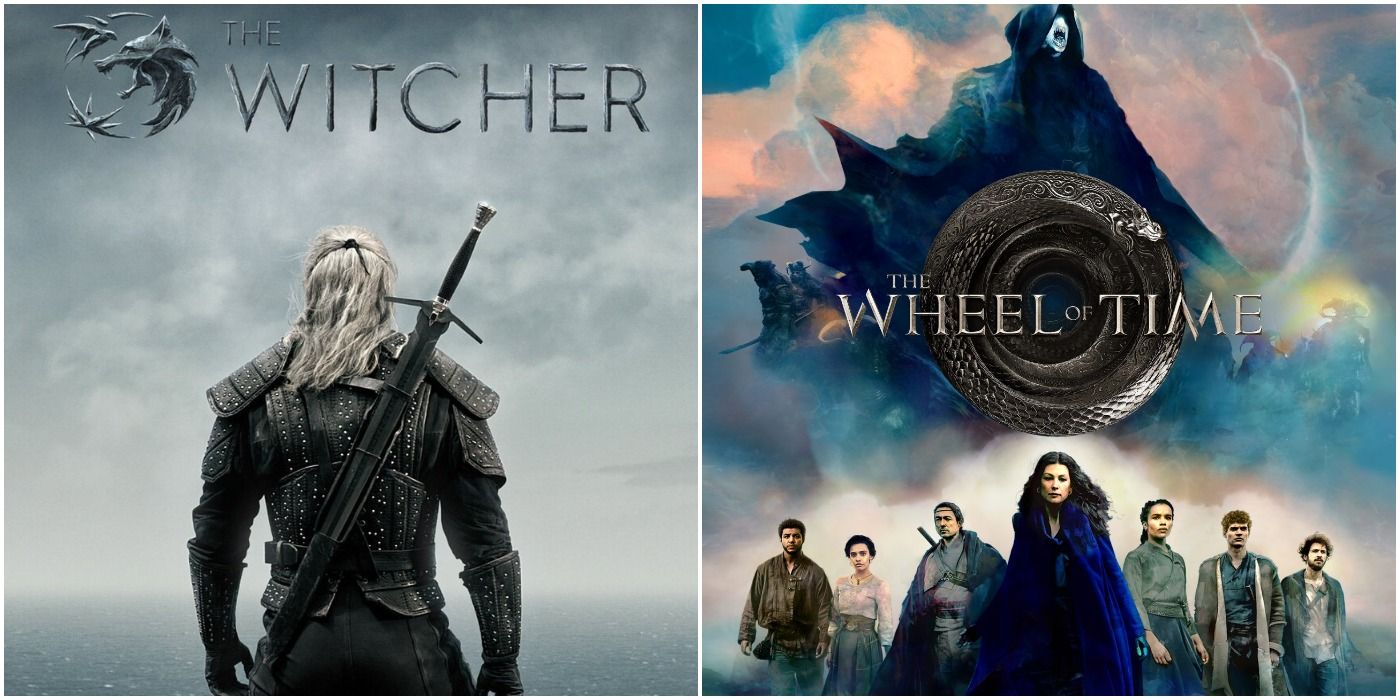There was once a time when Game Of Thrones was the most-watched fantasy show of all time. While David Benioff and D.B. Weiss' adaptation of George R.R. Martin's A Song Of Ice And Fire briefly became a bad memory after season 8, House of the Dragon has thankfully reignited the fandom's passion for this universe.
Game of Thrones' downfall can be mostly blamed on the controversial and botched final season, but many of these problems were there since the beginning. Rewatching HBO's dark fantasy today only makes this harsh reality more obvious for everyone to see.
Updated on May 12th, 2023 by Ajay Aravind: Despite all the backlash it received during and after Season 8, Game of Thrones' overwhelming impact on television cannot be understated. This wonderfully crafted fictional universe is receiving multiple potential spin-offs, ensuring that the fandom remains hungry for more Westerosi adventures, not to mention the poorly described continents of Essos and Sothoryos. As such, we've revamped this list with some more relevant information.
18 The Story Peaked At The Red Wedding
Game Of Thrones has countless memorable moments, but one of the most infamous is Season 3's Red Wedding. Here, the heroic Starks were ruthlessly slaughtered by the traitorous Boltons and Freys. The massacre sent shock waves across the continent and was praised for its daring brutality. However, in the eyes of many, the series never lived up to this moment again.
Time and again, GoT tried in vain to top the Red Wedding with an even bigger display of violence, like the Great Sept's wildfire explosion. The Red Wedding's success trapped the series in a loop, as it was stuck trying desperately to recreate the moment that cemented Game Of Thrones' unforgiving reputation instead of pushing the series forward.
17 Later Seasons Pale In Comparison To House Of The Dragon
House of the Dragon's first season has defied many expectations. It's an excellent season of TV, well-liked by critics and audiences alike. In particular, HotD shines a light on how much Game of Thrones fell over its run. House of the Dragon's tight plotting, political intrigue, and deep character development all ring true of Game of Thrones' first seasons.
After watching House of the Dragon, it can be hard to go back to the latter half of Game of Thrones. There is already a stark difference from the earliest seasons, but it becomes even more pronounced compared to House of the Dragon.
16 Gratuitous Scenes Of Sex & Violence
Egregious instances of sex and violence were practically Game Of Thrones' calling cards, so much so that gratuitous nudity and murder were included multiple times each season. GoT's defenders claimed that these were necessary for the story's deconstructive goals and themes, but the series' conclusive big picture says otherwise.
Brutal deaths and injuries were only really there for shock value's sake, and the show never bothered to properly analyze the violence on display. Instead, GoT portrayed the assaults as necessary for its female characters' development and growth. In hindsight, it can be argued that Game Of Thrones has a very immature understanding of sex and violence.
15 Most Storylines End In Unsatisfying Ways
Game of Thrones, particularly in its early seasons, displays some of the most compelling storytelling on television. The show seemed to effortlessly juggle a dozen plotlines up and down, pushing each of them along in every episode. Towards the end of the series, these plotlines fall by the wayside and end in unsatisfactory ways.
Whether it's characters like Daenerys and Jaime undoing their development, or political situations like Meereen or the Iron Islands being resolved entirely off-screen, plotlines that ended well were few and far between. It can be hard to get invested in any of the storytelling on a rewatch.
14 Character Deaths Come Across As Gimmicks
If there's anything more synonymous with Game Of Thrones than wanton violence, it's the deaths of major characters. The dark fantasy made a name for itself by promising not to spare anyone, and this was made clearest through Ned Stark's execution despite being in the narrative spotlight. Though Ned's demise was pivotal, other deaths became less so as the show went on.
What was once a genuinely shocking twist became a predictable jump scare, to the point that viewers and even GoT were more interested in counting down to characters' deaths than following their personal journeys. Joking about the sheer volume of deaths kept people interested in Game of Thrones during its run, but it doesn't make for good drama in a rewatch.
13 Game Of Thrones Actually Spoils House Of The Dragon
House of the Dragon takes place in Game of Thrones' past. Even before its release, however, fans could find out how the Dance of the Dragons ended if they wanted to. In one Game of Thrones scene, Joffrey Baratheon discusses Rhaenyra I Targaryen from House of the Dragon.
The conversation effectively spoils House of the Dragon, particularly Rhaenyra's story arc. The show is very enjoyable even knowing how it ends, but there will be fans who missed or have forgotten that conversation since then. They may not want to rewatch Game of Thrones and learn too much about House of the Dragon's future.
12 The Cast Gradually Became Less Nuanced
Part of Game Of Thrones' appeal was that it starred fantasy archetypes who were subverted and given harsh reality checks. Paragons like Daenerys Targaryen were blinded by naivety, and self-involved rogues like Jamie Lannister revealed hidden depths. While these were great starting points, the same can't be said for their frequently absent resolutions.
As it went on, Game Of Thrones flattened its previously complex characters into one-dimensional clichés. Nearly every character saw their depth and nuance simplified into single traits or even handfuls of recycled dialogue. Watching these characters degrade and devolve over time is impossible to miss in a rewatch, and it only makes a revisit that much harder to endure.
11 Much Of The Narrative Tension Came From Twists
Rewatching any show is a radically different experience because the audience knows what is going to happen the second time around. For a lot of shows, this isn't necessarily a problem. However, much of Game of Thrones' appeal was the constant surprises it threw at the audience and the shock twists that left viewers gasping.
As such, on a rewatch, Game of Thrones might not hold the same tension. A huge draw of the show was not knowing if Stannis Baratheon would succeed in taking the throne, or how the North's rebellion was going to end. Without the constant tension of the first-time watch, viewers might find themselves less enthralled.
10 The Grand Finale Isn't Worth It
Much has already been said about Game Of Thrones' catastrophic eighth and final season, but it bears repeating. The criminally short six-episode season didn't just hurriedly conclude plot threads and leave countless more preserved for potential spin-offs, but it also chose the safest ways to end the story.
The self-congratulatory finale was a transparently indulgent victory lap, not a worthwhile conclusion to a decade-long story. If a fan wants to rewatch all of Game of Thrones, they have to watch the finale eventually. It makes for a sour ending to a promising series and can kill much of the excitement of any rewatch.
9 Characterizations Weren't As Nuanced As They Could Be
House of the Dragon's first season has been a smash hit. It's even eased some of the bad taste from Game of Thrones' final seasons. However, it also makes Game of Thrones look worse in comparison. There are no direct copied characters between shows, although a few characters occupy similar archetypes in the story.
Aemond Targaryen can occasionally feel like a better-written version of Ramsay Bolton. Larys Strong has many of Littlefinger's best traits without his inconsistencies or embarrassing downfall. Aegon II Targaryen might be an even better monstrous boy king than Joffrey. After House of the Dragon's fantastic characterization, some Game of Thrones characters can feel worse on a rewatch.
8 The End Of The Books Became Clear
An unusual twist for Game of Thrones was that it quickly overtook the books it was based on. A Dance with Dragons came out shortly after the series premiered, and then no more books in the main series would be published over the course of the show's entire run. As such, the series started with plenty of material but quickly ended up relying on the author's notes.
The series overtaking the published books towards the end of Season 5 was noted as a drop in quality. However, this decline felt gradual, particularly with the long gap between each season. Rewatching the show in one go, however, makes the drop feel far more sudden, and makes it very clear when the series began to lose its footing.
7 Everything Wasn't Alright Behind The Scenes
Television-making culture changed greatly over the 2010s, ending at a very different place than when Game of Thrones began. Nonetheless, behind-the-scenes information since the series' conclusion suggests that it was always behind the times in regard to the safety and comfort of its cast and crew.
Game of Thrones had plenty of dangerous stunts and scenes that didn't need to be risky, such as extras injuring themselves during jumps, babies being placed on blocks of real ice, and the notorious waterboarding scene. Coupled with the genuine unhappiness that actors like Conleth Hill, Ian McElhinnon, and Emilia Clarke expressed regarding story decisions, fans might find a rewatch somewhat uncomfortable.
6 Game Of Thrones Contradicted Its Thematic Premise
When it began, Game Of Thrones was basically a high fantasy brought down to dirty and harsh reality. The knights and lords were far from noble, magic only made a bad situation worse, power was inherently corrupt, and so on. However, what seemed like a deconstruction of medieval society was really an affirmation and defense of it.
In Game of Thrones' controversial eighth season, power returned to the heroic elite after they executed a few "bad actors," including a queen who led the oppressed and laughed at the idea of democracy. Everything Game Of Thrones set out to deconstruct wasn't just reconstructed, but fortified by the finale. A rewatch only exposes more fatal flaws like these.
5 Game Of Thrones Is Too Long For Too Little
Game of Thrones is not a short show. Even with its abridged final seasons, it has over seventy-five hours of content. That's a hefty amount to rewatch. Some people are more than willing to sit through that much of a favorite show, especially if the ending comes with enough closure for the audience.
However, fans know that Game of Thrones ends on a contentious note. There are far fewer who are willing to sit through several days' worth of content only to be disappointed once again. It can be hard to justify the time to rewatch Game of Thrones given its ending. Even with an entertaining journey, the destination doesn't feel worth it.
4 Game Of Thrones Was Not As Dark Or Mature As Advertised
One of Game Of Thrones' biggest selling points was that it was the grown-up answer to idealistic high fantasies like The Lord Of The Rings. Westeros' saga could even be read as Martin's analysis of such stories, especially since he made his misgivings with J.R.R. Tolkien's epic public. However, Game Of Thrones ended up dark but not mature.
In the eyes of many, Game of Thrones' content gave it an R-rating, but it failed to back that up with adequately mature substance. Westeros had more blood, profanity, and sex than Middle-earth ever had, but it never went beyond being a provocative fantasy. The series rushing out a jarringly saccharine ending is only more proof of its lack of commitment to its supposed maturity.
3 Game Of Thrones Tarnished Its Source Material's Legacy
Before it was adapted to live-action, Martin's A Song Of Ice And Fire was one of the premiere fantasy series in bookstores and libraries. The HBO show's first few seasons validated its quality even more and catapulted it into the public consciousness. But its closing seasons dropped the ball so hard that it was quickly torn from its pedestal.
Today, Game Of Thrones as a whole has been reduced to a cautionary tale and punchline almost nobody wants to mention or even remember. The series' failure made many viewers and readers question if the source material was any good in the first place, with any excitement for the last two books giving way to disinterest and mockery.
2 It's Hard To Care About Doomed Characters
It's often said that the journey is more important than the destination, but it's still important for many viewers to know that the story is progressing somewhere. A side effect of Game of Thrones' frequent character deaths was that a lot of screen-time was spent highlighting characters who were inevitably going to die.
Even well-received deaths, like Robb Stark's, could be problematic on a rewatch. Ned Stark's story, which lasted only one season and set up the rest of the show, was a fine amount of time to spend on a doomed plotline. However, on a rewatch, the audience may struggle to care about the North's seasons-long doomed rebellion or Stannis' many plans that ended in his defeat and death.
1 Game Of Thrones Negatively Impacted The Fantasy Genre
Through no fault of its own, Game Of Thrones kick-started an edgy trend that's still being chased today in shows like Vikings and The Witcher, but its failure inflicted worse damage. When it crashed and burned, interest in and respect for the fantasy genre plummeted. Viewers simply weren't ready to give another medieval epic a shot in fear of reliving Westeros' disappointment.
Despite positive reviews, The Wheel of Time has been a far lower-key show, and Game of Thrones' murky legacy is one of the many reasons behind the criticisms aimed at The Lord Of The Rings: The Rings Of Power. Revisiting HBO's dark fantasy today only makes its negative ramifications on the genre more pronounced, and it will be a long time before the high fantasy reclaims its former glory.

